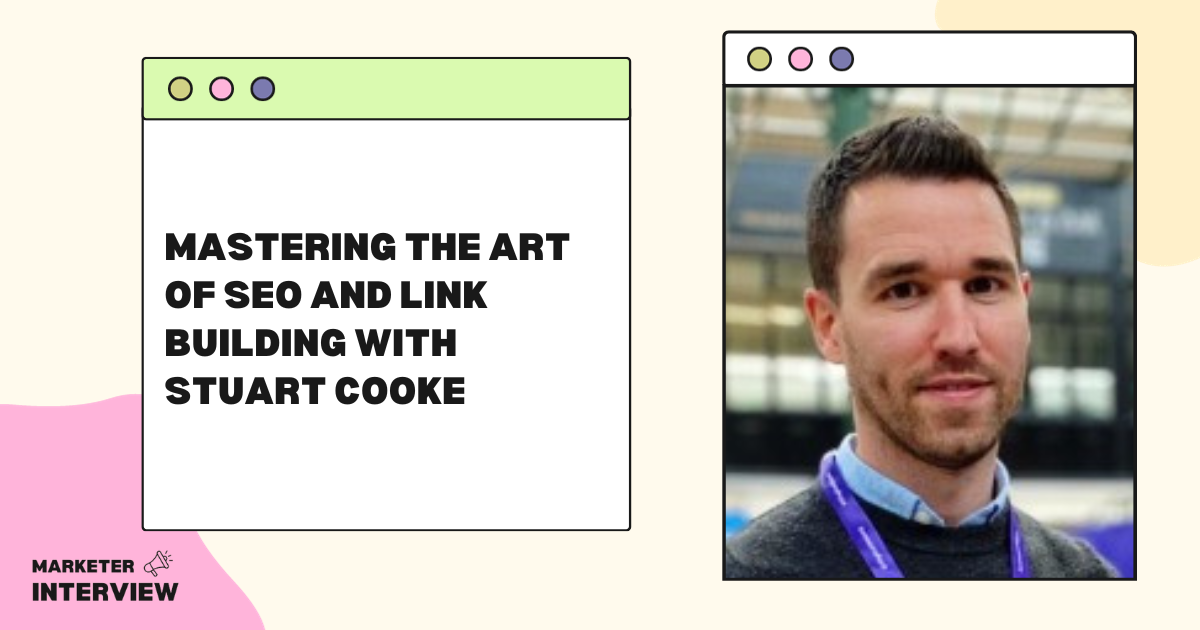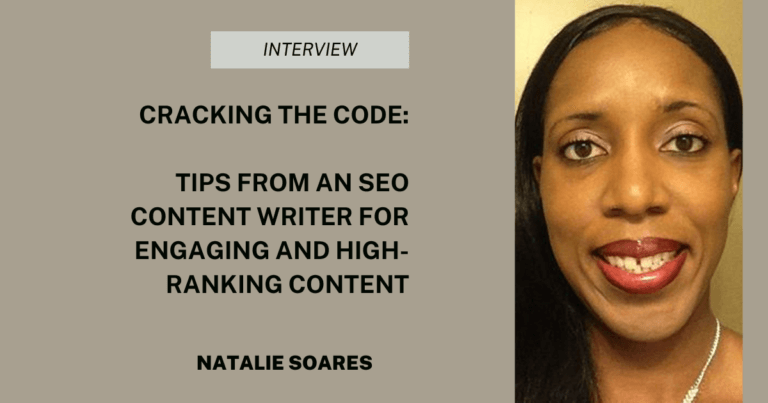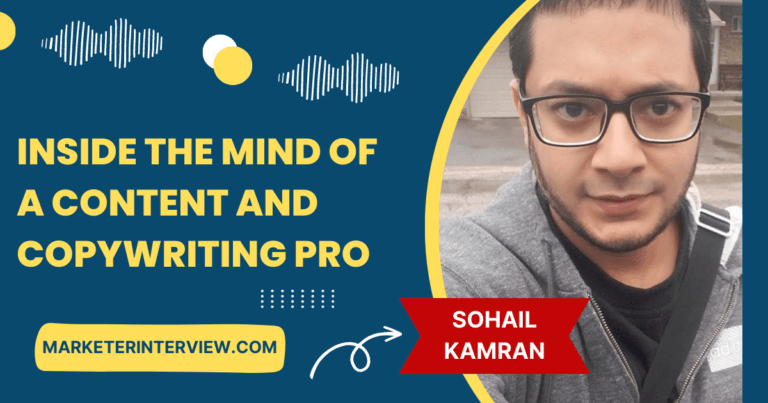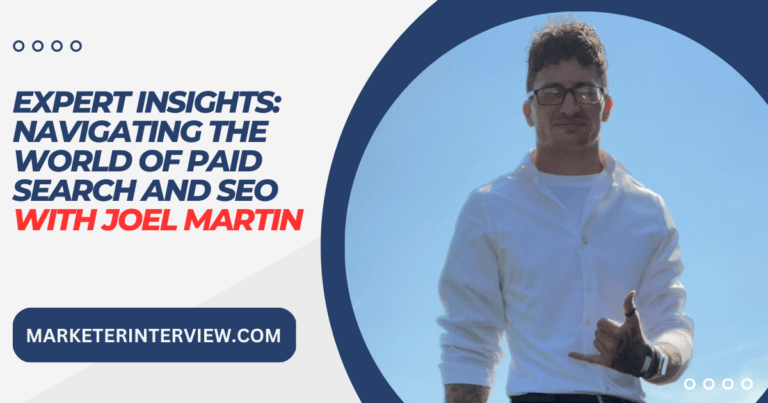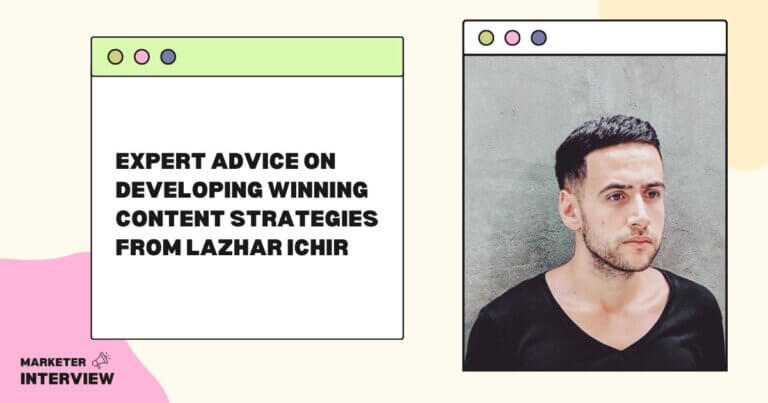Mastering the Art of SEO and Link Building with Stuart Cooke
Welcome to Marketer Interview, where we bring you insights from the brightest minds in the marketing industry.
Today, we have the privilege of speaking with Stuart Cooke, the Founder of Levity Digital.
Stuart is an SEO, Link Building, Competitor Analysis, and Content Strategy expert. With an impressive career in the marketing world, we’re excited to delve into his journey and expertise.
Contents
- 1 Can you share how you entered the marketing world and what inspired you to specialize in SEO and link building?
- 2 Your LinkedIn profile mentions you founded Levity Digital. Please tell us about your motivation and vision behind starting this company.
- 3 In the dynamic field of SEO, what are the key strategies you find most effective in keeping websites at the top of search engine results?
- 4 Could you share an example of a particularly challenging SEO project you’ve worked on and how you tackled it?
- 5 Competitor analysis is crucial in marketing. What tools and methodologies do you employ to gain a competitive edge?
- 6 Content strategy is central to digital marketing. How do you approach developing content that not only engages but also converts?
- 7 Can you provide some insights into the future of SEO and how it’s evolving in response to search engine algorithms and user behavior?
- 8 For those looking to improve their link-building efforts, what practical tips can you offer to enhance their link-acquisition strategies?
- 9 What metrics and key performance indicators (KPIs) do you find most valuable for assessing the success of an SEO campaign?
- 10 Could you recommend any essential software or tools indispensable in your career for tasks such as SEO analysis and content management?
- 11 How do you stay updated with the latest trends and best practices in a rapidly changing field like digital marketing? Do you have any favorite resources or communities you rely on?
Like many SEOs, I got into it by accident. While working in a digital marketing internship, I saw a job ad for a trainee SEO position in a digital agency. I had only briefly encountered SEO but had yet to gain actual knowledge. I applied for the job and got it, and the rest was a steep learning curve as I was thrown straight into client work.
The focus on link building was always there right from those early days as it was clear that it’s a vital part of any serious strategy, and it was also evident that a lot of marketers would instead do anything else than the tedious, often unrewarding task of manual outreach and link building.
Your LinkedIn profile mentions you founded Levity Digital. Please tell us about your motivation and vision behind starting this company.
The primary motivation for founding Levity Digital was my growing frustration with how SEO was being applied by full-service agencies and marketing freelancers, especially in my home country, Northern Ireland.
I knew there was a gap in the market for a specialist SEO agency that could develop SEO strategies with the time and dedication needed to be effective. So, Levity was created to offer a more sophisticated approach for companies with higher ambitions.
In the dynamic field of SEO, what are the key strategies you find most effective in keeping websites at the top of search engine results?
There will always be trends and new tactics that become popular in SEO, but I think the fundamentals of a good SEO strategy haven’t changed over the years.
Successful SEO must cover technical issues, content strategy, and link building. You should see good results if you can get these 3 areas working in sync and always have the user at the forefront of what you do.
One of the most challenging campaigns we worked on was for a new website in the cybersecurity industry. They were almost solely reliant on paid search traffic, which was very costly and unsustainable for them.
We had to set them apart because it was such a competitive niche. We did this by identifying winnable keywords that we could realistically rank for in weeks/months and building an extensive content strategy around them. This, paired with a link-building strategy, enabled them to outrank much larger competitors and increase their organic traffic to the point that it became their primary source of revenue.
Competitor analysis is crucial in marketing. What tools and methodologies do you employ to gain a competitive edge?
We have some go-to tools like Ahrefs, Screaming Frog, Mailshake, etc., but using your knowledge and intuition is often the best approach to competitor analysis.
An experienced SEO should be able to identify what a competitor is doing to rank well in an industry successfully. As I mentioned earlier, it’s often the case that they are implementing those 3 key areas better than anyone else in their niche.
Content strategy is central to digital marketing. How do you approach developing content that not only engages but also converts?
When creating content that converts, it’s crucial to understand who it’s being written for and what they want to gain from it.
We gather that information in the early stages of an SEO campaign when we identify the ideal customer profile and the keyword research we carry out that usually dictates the type of content we create. It serves its purpose if it’s answering a question and moving them along their buyer journey.
Can you provide some insights into the future of SEO and how it’s evolving in response to search engine algorithms and user behavior?
SEO, by nature, is constantly evolving, with new technologies and innovations happening all the time. The latest one is the introduction of ChatGPT. Again, the pillars always remain the same. The goal will always be to create the best result for the user’s purpose, not any particular search engine.
There will always be different strategies, tools, and technologies you can use to achieve that, but as long as you have that goal in mind, you shouldn’t go too far wrong.
One trend that will continue to grow is that users will want to get information and answers to their questions more quickly. People don’t want to click on a website if they can get their answer from a featured snippet, so it will become even more critical for SEOs to cater to that and ultimately make the user want to use the service providing them with the answer.

For those looking to improve their link-building efforts, what practical tips can you offer to enhance their link-acquisition strategies?
Create content that people want to link to. That sounds overly simplistic, but it’s the majority of websites. SEO campaigns fail to achieve this because they just regurgitate existing content and expect influential websites in their industry to want to link to it. You must create engaging, unique, and useful content and do the work to get it in front of the right people. That’s where consistent outreach comes in.
What metrics and key performance indicators (KPIs) do you find most valuable for assessing the success of an SEO campaign?
Ultimately, the only metric that matters is the revenue that an SEO campaign generates. However, there are often other factors that can stand in the way of a customer conversation that are beyond the control of the SEO team.
The KPIs will change according to the overall aims of the clients. Still, driving relevant, engaged organic traffic to the correct pages on a website will always be an essential metric, more so than rankings, domain authority, number of links, etc., which can run the risk of becoming vanity metrics if you worry about them too much.
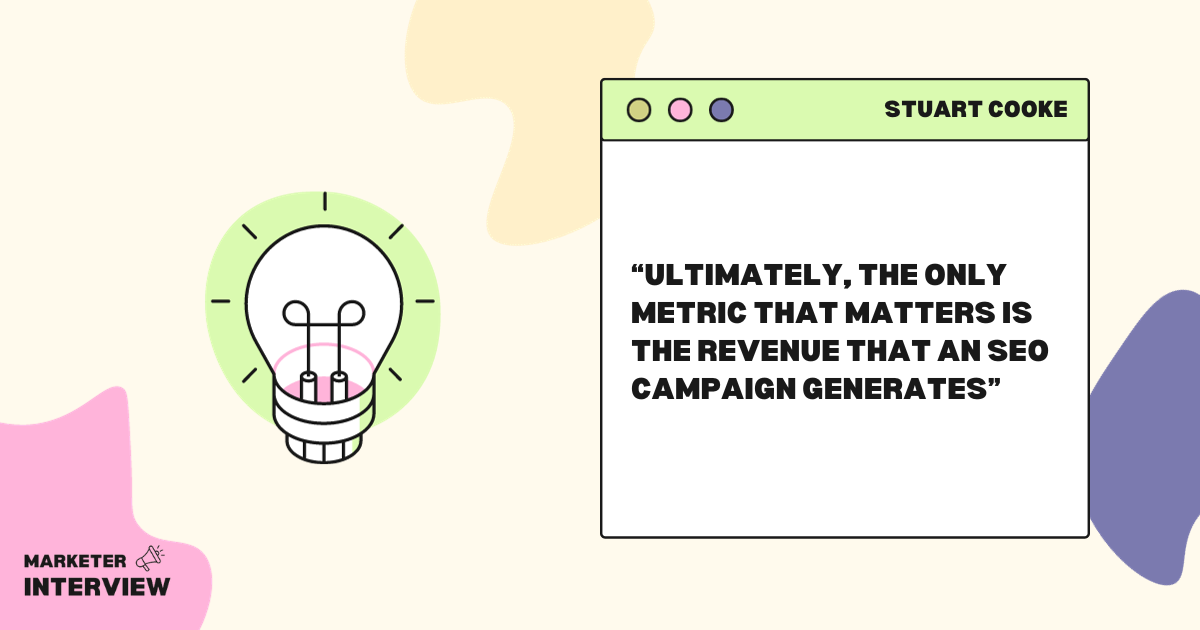
Could you recommend any essential software or tools indispensable in your career for tasks such as SEO analysis and content management?
As I’ve mentioned, I’m a big fan of Ahrefs, my primary go-to tool for analysis, and most people will be familiar with the other main tools we use, such as Google Analytics, Screaming Frog, and Google Search Console.
For content management, we mainly use Trello, which is essential but handy to keep track of the topics we’re working on, moving through the funnel, and seeing who is assigned to which project.
How do you stay updated with the latest trends and best practices in a rapidly changing field like digital marketing? Do you have any favorite resources or communities you rely on?
LinkedIn is a great place to learn new things and keep up to date with the latest news/trends. I save a lot of posts from people I respect in the industry and set some time aside each week to read through them.
Weekly newsletters are also helpful in keeping updated in an industry that can rapidly change. A couple of my favorites are SEOFOMO and SEO Notebook.
